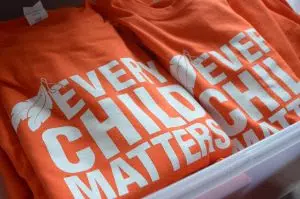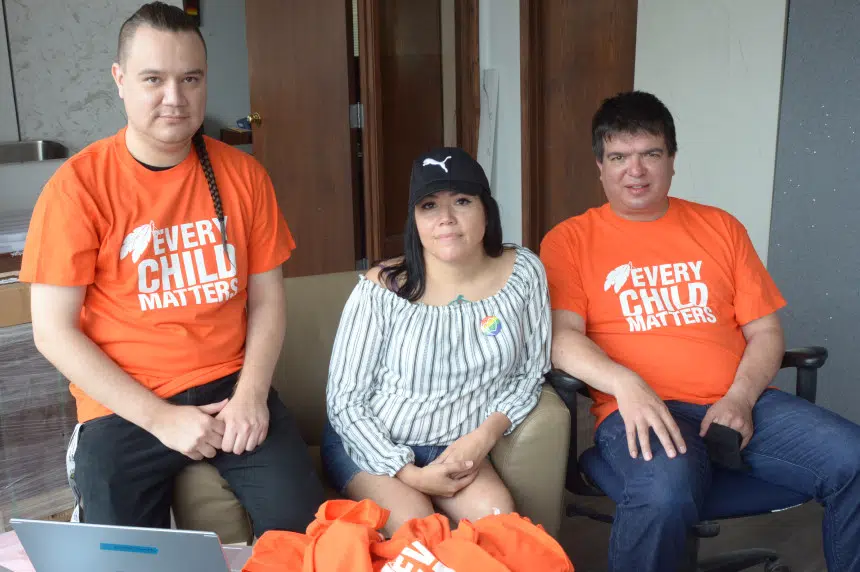The colour orange will be used in Regina to draw attention to Canada’s colonial past and the long shadow it leaves behind.
Chasity Delorme, a grassroots organizer and advocate, has been selling orange T-shirts emblazoned with the words “Every Child Matters” for people to wear on Monday for National Indigenous Peoples Day as well as on July 1.
Those behind the campaign hope the shirts will be conversation starters, getting people to discuss the genocide of Indigenous people as well as topics like Canada’s treaty obligations, missing and murdered Indigenous women and girls, and disparities in socio-economic outcomes.
Paint Regina Orange is not the only instance where people have been calling for reflection rather than celebration on Canada Day following the discovery of 215 children buried in unmarked graves at a former residential school in Kamloops, B.C.
In Victoria, B.C., and in La Ronge, Canada Day celebrations have been cancelled altogether.
Delorme is a member of the Cowessess First Nation and doesn’t see herself as a Canadian. She won’t be celebrating on July 1.

Shirts intended to be worn on National Indigenous Peoples Day and on Canada Day. Organizers of Paint Regina Orange hope they will spark conversations about Canada’s relationship with Indigenous people. Proceeds from sales will go to an Indigenous artist as well as a local charity. (Joseph Ho/980 CJME)
“This country was created on genocide, stolen land. Indigenous people gave their lives, their blood. They died as a result of this nation being created. That’s not a day to celebrate,” Delorme said.
“So when we show the orange shirt, it’s reminding people of the historical trauma (and) also who this country originally belongs to.”
Corie Amundson, who is helping Delorme with the event, hopes it will trigger hard conversations about reconciliation that are overdue.
“Because we’re not going away … the settler Canadians aren’t going away so we have to find a way to get through this and one way to do that, it’s to say ‘Let’s face it head on,’ ” Amundson said.
Similar finds to the one in Kamloops are expected and Amundson says that needs to be a “catalyst” for Canadians to reckon with the past. He says many people cling to myths about the country, “pretending that they’re peacekeepers and the world’s friendly place, when they have all these skeletons, literally skeletons.”
“If this doesn’t spark Canadians to do some soul-searching, then nothing will,” he said.
Delorme says those further discoveries will be a traumatic experience. She has read the names of children who never returned home from Marieval Indian Residential School, which operated until 1997 in her area.
“You really lean on your community, our Indigenous community,” she said.
“We hope that the non-Indigenous communities will support us and understand how important … (it is) acknowledging these children and the trauma that comes along with it.”







